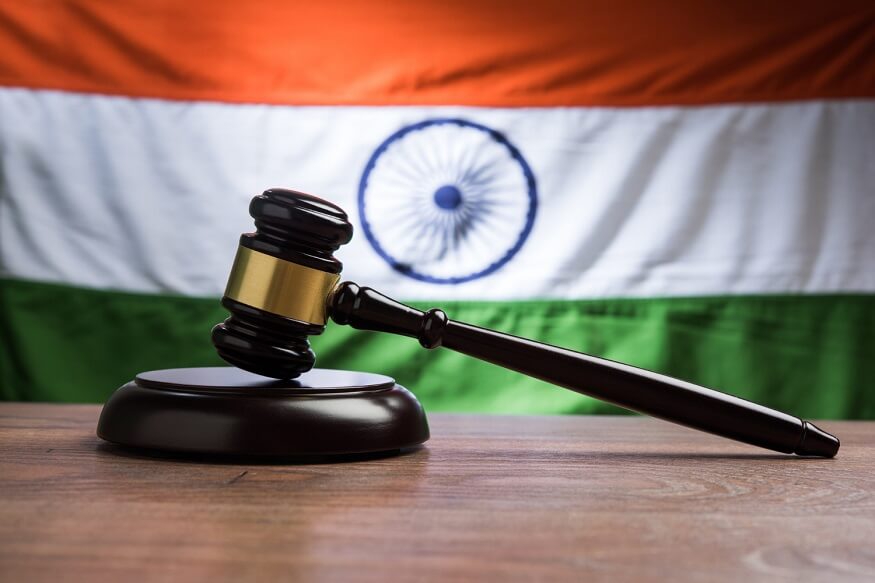The Indian Constitution, forms the bedrock of India’s democratic system, through it a framework for governance is established while also outlining the obligations and freedoms bestowed upon citizens. The following blog serves as an introduction to the constitution of India for people wanting to gain knowledge about the Constitutional law of India and the Indian Constitution. We invite students, new citizens or anyone who displays even a little interest on these subjects to peruse this material which provides an overview of India’s supreme legal document, how it operates within our legal framework and its guiding values. Also included in this introduction to the constitution of India are discussions on important historical figures who contributed in forming our constitution. This blog highlights significant reasons why India must ensure the protection of its constitution. Through this blog, it is certain that you will attain a deeper understanding of the Indian Constitution. Furthermore, this information can provide clarity and insight necessary for one’s meaningful involvement in shaping democracy.
History of the Indian Constitution
The history of the Indian Constitution is extensive and complicated. It was established only after Indian independence from British control in 1947 despite its initial proposition over a decade earlier, the Constituent Assembly stands as a significant feature of Indian political history. Under the guidance of Dr. B.R.Ambedkar and after exhaustive discussions lasting close to three years, the Assembly framed the constitution of India which would become one of India’s most significant documents – the Constitution – which was finally accepted with great enthusiasm on November 26th,1949.
It was a triumph for all who had tirelessly worked towards its creation; all could appreciate this document’s full realization when it went into effect on January 26th,1950 precisely.
The Constitution of India is a special document that is the longest written constitution in the world with 448 Articles, 12 Schedules, and 5 Appendices. In spite of difficulties and controversies, the final constitution represents the values of democracy, secularism, and social justice that were significant to the Indian people.
Endless toil and unwavering commitment were the driving forces behind the design of the Indian Constitution, a testament to its ability to satisfy the needs of a diverse society. It remains an indispensable component in safeguarding Indian democracy, symbolizing the profound heritage and tradition that define this great nation.
Also Read: Exploring the Voting Rights in India
Key Features of the Indian Constitution
The Indian Constitution is a thorough text that explains the structure of the Indian government. The Indian Constitution has several important elements, including:
- Preamble: Through Preamble, India’s Constitution lays out key objectives including justice, liberty, equality and fraternity. By prioritizing these values as fundamental pillars of governance & society at large, India endeavours to build a nation founded on egalitarianism & social harmony.
- Fundamental Rights: In order to ensure individual liberties that form the foundation of a democracy in India, citizens are granted unconditional access to certain unalienable rights like equality before law, expression without restraint, protection of individual faiths and beliefs along with life and liberty.
- Directive Principles of State Policy: These principles direct the government in promoting the welfare of its people, including social justice, environmental preservation, and education.
- Union and its Territories: The political arrangement of India as per its Constitution is a federal union consisting of states, union territories, and national government-controlled areas.
- Fundamental Duties: The Indian Constitution also outlines fundamental obligations that individuals are obliged to uphold in addition to fundamental rights. These responsibilities include upholding the Constitution and national symbols, fostering concord and the spirit of brotherhood, and safeguarding the environment.
These fundamental characteristics serve as a cornerstone for India’s government and the defence of the rights and welfare of its people. They are a crucial part of the Indian legal system and act as a manual for how the government should run.
Also Read: Difference Between Lok Sabha and Rajya Sabha
Evolution of the Indian Constitution
The Indian Constitution has undergone numerous amendments and modifications over the years to reflect the shifting demands and ambitions of Indian society. The following are some significant changes in the Indian Constitution’s development:
- First Amendment: The Indian Constitution had its first significant revision in 1951, adding clauses that restricted both the right to property and the freedom of speech and expression.
- Removal of the Privy Purse: The Privy Purse, a payment made to former princely state rulers who united with India, was abolished in 1971 because it symbolised India’s colonial past and impeded the country’s transition to a modern democracy.
- Emergency Provisions: In the event of risks to national security or government operations, the Indian Constitution enables the declaration of a state of emergency. The emergency was invoked for the first time during the Indo-China War of 1962 and later during Indira Gandhi’s internal Emergency in 1975. This invocation led to the suspension of fundamental rights and instigated a clampdown on political dissent.
- Recent Amendments: To address pressing concerns related to women’s and children’s rights, discrimination against marginalized groups in education and employment, and to promote regional self-governance, the Indian Constitution underwent necessary changes. The 103rd Amendment Act of 2019 increased the 10% reservation for economically disadvantaged areas.
The Indian Constitution is still a living, dynamic text that embodies the ideals and ambitions of Indian society notwithstanding the revisions and amendments. The Constitution is frequently viewed as the foundation of Indian democracy and a representation of the nation’s rich political and cultural history.
Also Read: Which country started the Civil Rights Act in 1964?
Importance of the Indian Constitution
Both India and its populace find immense importance in the Indian Constitution. It plays a pivotal role in providing direction by defining essential morals, standards, and regulations that are applicable throughout the land. Below are some reasons:
- Guarantees Fundamental Rights: All individuals who hold Indian citizenship are entitled to certain inherent rights under the Indian Constitution. These core principles encompass concepts like equal protection of the law, liberty and preservation from arbitrary detention, unrestricted expression of religious beliefs as well as personal opinions. These rights provide protection from governmental acts for people and society, ensuring a life of dignity.
- Provides a Framework for Governance: The Indian Constitution lays forth the structure of government, outlining the various branches, the electoral process, and citizen rights. It encourages openness and responsibility while defending all societal interests.
- Promotes Social Justice: The welfare of citizens, social justice, and inclusive growth are given top priority under the Indian Constitution. It requires reserving seats and jobs for underrepresented groups, protects the rights of women and children, and fosters social peace. No one is left behind, and benefits are distributed fairly.
- Reflects the Diversity of India: The Constitution recognises and preserves the diverse languages, faiths, and civilizations that make up India. Representing all members of a society is ensured by the democratic government.
- Upholds the Rule of Law: With the implementation of an unbiased court system via an independent judiciary branch, India’s constitution solidifies its intention to uphold laws fairly and without prejudice. This crucial legislation guarantees citizens’ essential liberties while allowing for social progress and development across all facets of life.
Conclusion
What makes the Indian Constitution unique is that it provides a comprehensive system for governance that supports fair distribution, enforces legal principles, and ensures basic rights. It is based on the democratic beliefs and desires shared by its populace. The welfare of all citizens is highlighted by its portrayal of the variety of Indian society. For informed and involved citizens to have a deeper respect for democratic values and fairness, it is essential to understand the provisions of the Constitution. It stands for India’s dedication to advancing social justice and the wellbeing of its population. Let’s strive to create a more affluent and inclusive India while valuing this outstanding constitution.
For more such informative blogs, please visit our website.











